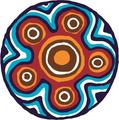YEAR 7 Term Overview

Dear Year 7 Families,
We would like to extend a warm welcome back for Term 2 and hope that you all had a safe and relaxing holiday. Term 1 was a success on many levels; no success greater or more pleasing than the sense of community and belonging that has been established amongst the Year 7 cohort. Just like Term 1, the second term is shaping up to be a big one with the eagerly awaited Year 7 Camp fast approaching.
The following is a brief curriculum overview of what Year 7 students will be covering throughout Term 2:
English: During Term 2 students will be exploring the power of persuasion in both reading and writing. In their reading, students will begin by identifying different persuasive devices authors use to influence their reader, these include, language features, appeals, implied meaning and text structure. Using these devices, students will evaluate their effectiveness and form their own response for how these strategies can influence an audience. In conjunction with the skills they will explore in their reading, students will plan, draft and publish a persuasive text that draws on their own personal knowledge to express or challenge a point of view. In doing so, students will use language devices such as rhetorical questioning, high modality vocabulary, statistics, evidence and a variety of ethical, emotional and logical appeals to support the arguments they make.
Numeracy: To begin the Term, students will be introduced to the concept of variables and how letters can represent an unknown number. Applying this knowledge students will conceptually understand how to use balance models to transpose the linear equation and solve the value of the unknown variable. Subsequently, students will explore a unit focused on 2 dimensional shapes, specifically focusing on angles and area of quadrilaterals and triangles. Students will use the knowledge of the sum of angles within these 2 dimensional shapes to solve a missing angle. This will give students an opportunity to embed and consolidate their algebraic thinking when solving the unknown angle within these shapes. Following these units, students will move into economics and financial maths. This unit will allow students to apply their fractional thinking and proportional reasoning to calculate best buys and find percentages of quantities. Finally, students will explore a unit that combines integers and angles. Integers will be contextualised through a cartesian plane, which will require students to plot points on a cartesian plane and find coordinates for a given point. Concurrently, students will identify corresponding, alternate and co-interior angles when two parallel lines are crossed by a transversal line.
Science: This term in Science, students are investigating ‘Water Power’ and the use of hydroelectricity as a sustainable and renewable energy source. This builds upon students’ knowledge around how we currently use Earth’s renewable and non-renewable energy resources and the implications and benefits for sustainable future energy practices. They will continue to build questioning skills which support deeper learning of topics through inquiry. Students will make and test simple systems, for example a water turbine, and use formal science reporting processes to record, analyse and discuss results. They will identify real world problems related to water use at a school community level and design sustainable solutions.
Hums: Humanities this term will see both Geography and Civics running simultaneously. In Geography we are looking at the ways that water flows throughout the environment. Students will examine the ways that water affects a variety of ecosystems and environments. This will also include how Australia uses its water resources compared with similar sized countries. We will discuss the concept of water scarcity and how we, as humans can play a role in overcoming it. We will also consider how First Nations peoples value water. This unit will closely be connected with science as then delve into the process of how to save and conserve water. In our civics and society unit we are asking ourselves, how can informed citizens effectively communicate and are empowered to enact real change. We have started answering this by considering the key features of government under the Australian Constitution, including the separation of powers, the Executive, the role of the Houses of Parliament, and the division of powers. We will carefully guide students as they consider how changes in the constitution have changed and how it affects equality and equity within our country. By the end of the unit, students will be able to explain and analyse democracy, the Australian constitution and better understand how to take action to help their community. This unit ties in beautifully with the Australian election which will provide authenticity and context.
Health: During our health sessions, students will consider how Informed citizens actively support positive health choices and outcomes. Students will investigate how technology often provides a barrier to those to seeking mental health support and evaluate strategies to overcome these. Throughout the unit, we will evaluate the everyday choices we make online and if they reflect who we are and how online personas can be vastly different from reality. Students will be introduced to the concept of a digital footprint and what they can do to either carefully cultivate their footprint and analyse if their online persona matches their offline persona.
We hope you are all looking forward to another big term, because the teachers certainly are!
Kind regards,
The Year 7 Team.
